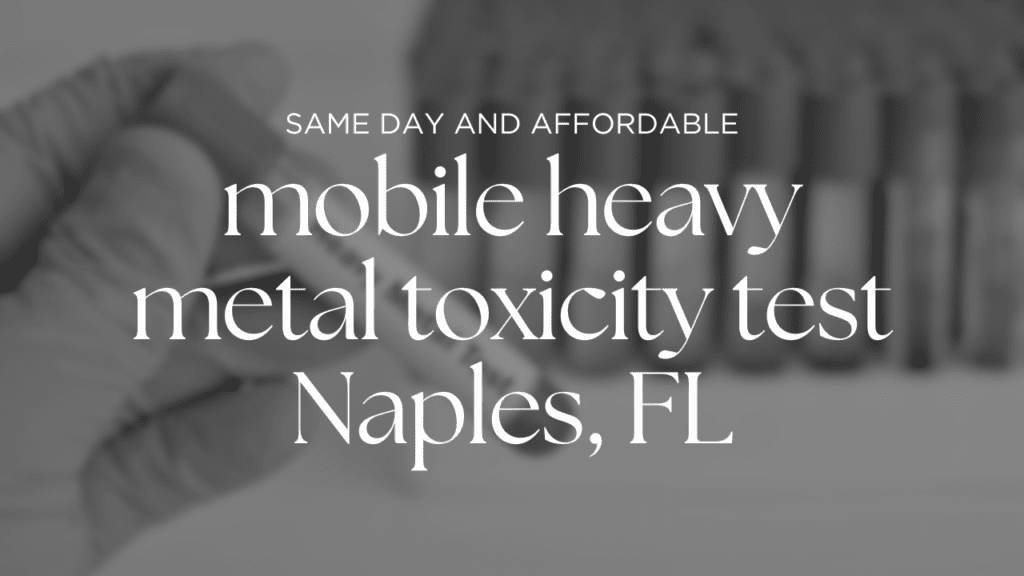Imagine discovering that your daily environment harbors hazardous contaminants. Heavy metals testing becomes an imperative safeguard for your health.
Heavy metals, when present in high levels, have profound implications on our physiological well-being and necessitate vigilant monitoring.
Engaging in heavy metals testing is a critical measure to ensure that our exposure remains within safe limits, safeguarding our health from potentially deleterious effects.
Understanding Heavy Metals
Heavy metals are naturally occurring elements that can accumulate in biological systems, leading to potential toxicity and health issues. These elements, though trace in nature, become nefarious when concentrations surpass biological safety thresholds.
In the context of human exposure, various industries and environmental factors release heavy metals like lead, mercury, and arsenic into our surroundings. Continuous exposure to these contaminants can result in bioaccumulation, which may systematically affect an individual’s health and necessitate clinical intervention.
The terms “heavy metal toxicity” and “heavy metal poisoning” are critical distinctions within medical vocabulary, referring to the adverse biological consequences of excessive metal accumulation.
Health Impacts of Exposure
Chronic exposure to heavy metals can manifest as multisystem health issues with potentially irreversible consequences.
The body accumulates these toxins over time, potentially leading to neurological disorders, renal damage, and various cancers, which stay hidden until clinically evident.
Detoxification mechanisms may fail to expel significant metal burdens, leading to a progressive decline in physiological function and exacerbation of chronic conditions.
Common Heavy Metals Tested
Many individuals have heard whispers about the dangers of heavy metals, but what exactly are they, and how can we assess our exposure? Fear not, for venturing into the world of heavy metal testing isn’t as daunting as it may seem. This brief guide will shed light on the most commonly tested heavy metals and why they matter.
The Notorious Four:
At the forefront of heavy metal testing lie four infamous culprits: lead, mercury, arsenic, and cadmium. These elements have garnered notoriety due to their potential for harm at elevated levels. Lead, for instance, can wreak havoc on the nervous system, particularly in children, while mercury can damage the brain and kidneys. Arsenic exposure has been linked to various cancers, and cadmium can accumulate in the kidneys and bones, leading to long-term health problems.
Beyond the Usual Suspects:
While the aforementioned four metals take center stage, other players sometimes join the testing panel. Depending on individual circumstances, healthcare professionals may recommend testing for additional metals such as copper, chromium, aluminum, and nickel. Each metal possesses unique properties and potential health implications, highlighting the importance of consulting a healthcare professional to interpret test results accurately.
Remember, this is just a starting point. If you have concerns about heavy metal exposure, consulting a qualified healthcare professional is crucial. They can assess your individual risk factors, recommend appropriate testing, and guide you towards personalized strategies for minimizing exposure and promoting overall health.
Testing Methods Explained
Atomic absorption spectrometry (AAS) is a pivotal technique in detecting heavy metals in biological specimens, using light absorption to quantify metal concentrations with high sensitivity and specificity.
Inductively coupled plasma mass spectrometry (ICP-MS) stands as a robust analytical method, harnessing ionic heat energy to atomize samples, allowing for the detection of trace metals at part per billion concentrations with formidable precision.
These two instrumental methodologies offer a comprehensive view into the body’s burden of heavy metals, producing data essential for informed clinical decision-making.
Why Choose Mobile Heavy Metal Testing?
- Convenience: Eliminate the hassle of traveling to a lab for testing. The Wellness Lab’s dedicated nurses come to your home or office, making the process seamless and time-efficient.
- Comfort: Enjoy the privacy and comfort of your own surroundings during the testing process, reducing any potential anxiety associated with clinical settings.
- Personalized Expertise: The Wellness Lab’s team of healthcare professionals will guide you through the entire process, from understanding the test results to discussing personalized treatment options based on your individual needs.
- Comprehensive Analysis: Their testing panel covers a broad spectrum of heavy metals, including mercury, lead, arsenic, cadmium, and aluminum, providing a thorough picture of your overall exposure.
Contact The Wellness Lab today
Contact The Wellness Lab today to schedule your mobile heavy metal testing and embark on a journey towards a healthier, more vibrant you. Remember, knowledge is power, and taking control of your health starts with understanding your body’s unique needs.



